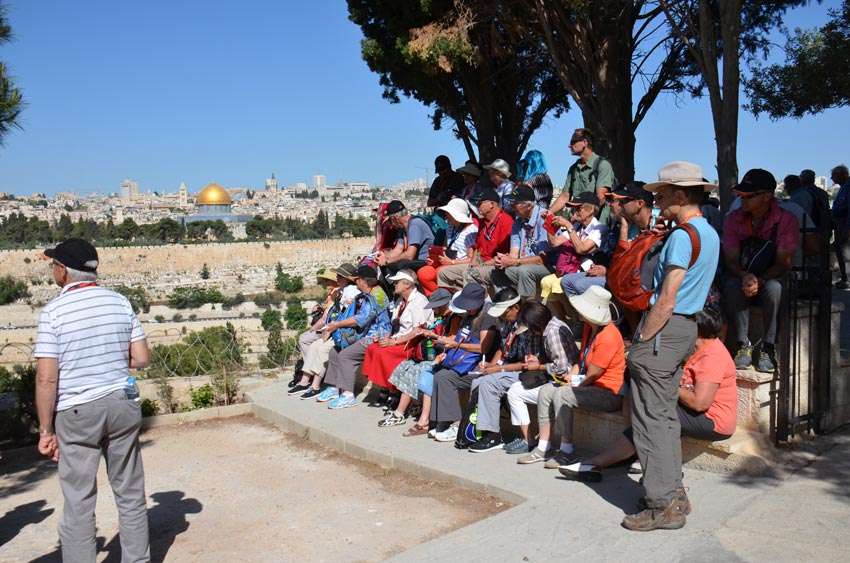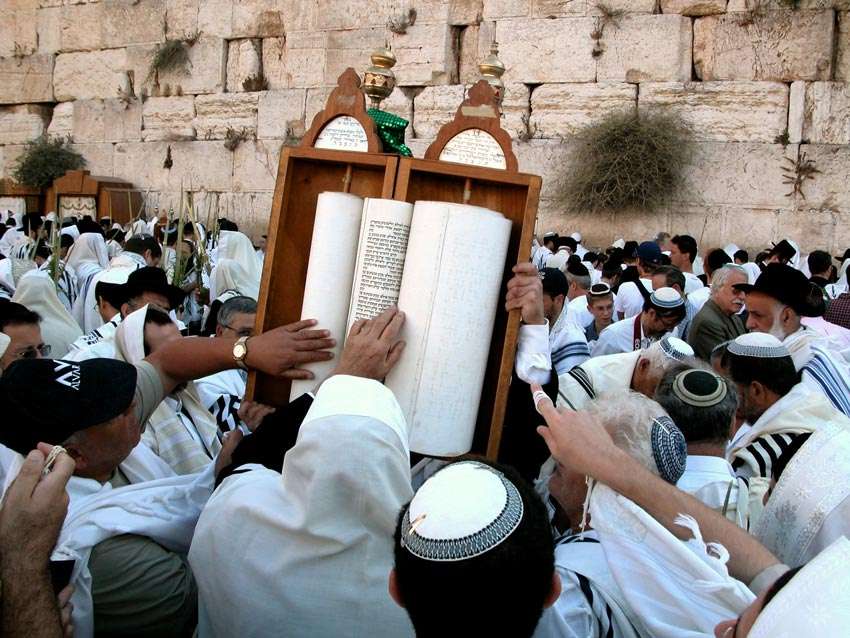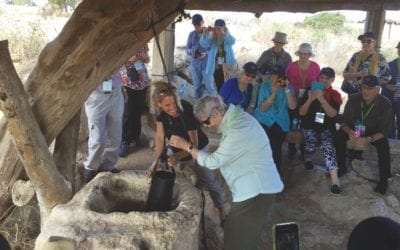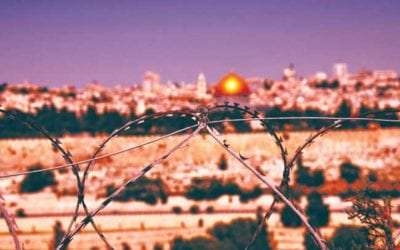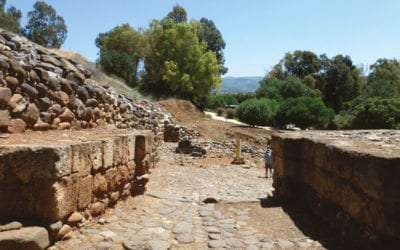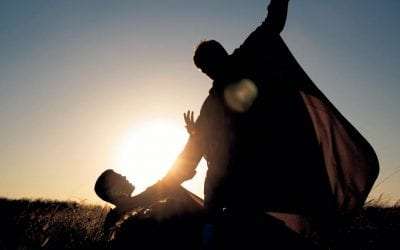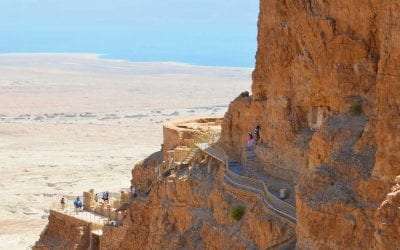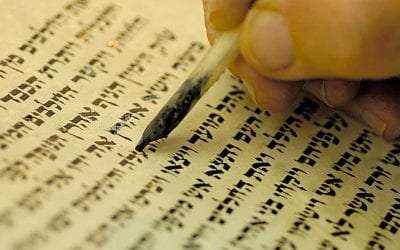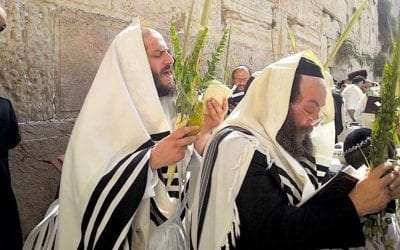When the Shema is recited by the Jewish people (and Christians), it begins with this statement: Hear, O Israel, the Lord is our God, the Lord is one. (Deuteronomy 6:4) Pronouncing God’s name YHWH is considered a sin, so the Jewish people use other words to replace...
Bible
Jerusalem: Magnet for Christian Visits (Part Two)
In Part 01 of our series about Jerusalem and Christians visits, we learned that the ‘river of pilgrimage’ has been flowing from the very beginning of the church age. Christians constitute the highest amount of sacred visitors to a holy city which is also sacred to Judaism and Islam, too. This growing phenomena in Christian visits is even more remarkable considering that neither Christ nor the apostles command it, and there is more of a spiritual, rather than geographic, emphasis in Christian worship. We also learned why Christians visit Jerusalem. They can be summarised in two key words: Devotion: From the very beginning, Christians have been motivated to visit Jerusalem so that they can ‘walk where Jesus walked.’ Following in the footsteps of the Master is a strong sign of devotion. Education: Pious believers visit Jerusalem because they want to learn more about the Bible. Considering that Jerusalem is mentioned over 811 times in the KJV, it is indisputably the premier city of Scripture. What is remarkable is that these twin pillars of devotion and education can be applied across the board, to pilgrims from every denomination and every century of the church age. The Tourism Factor To the ancient […]
Embrace the Feasts. Enjoy the Lord
This is the season of joyful feasts, a time of year where the faithfulness and triumph of the Lord is measured against worldly threats. Jesus used the Feast of Tabernacles to make a profound statement. On the last day of the Feast, He declared rivers of living water would flow from the innermost being of those who believe in Him (John chapter 7) The Feast of Tabernacles, this year in October, is also known as Sukkot (sukkah singular). Most people eat and sleep in the Sukkah. From the fragile sukkah the stars are visible and the occupants are exposed, at least partially, to wind and rain. The conditions relate to their history and the forty days of wandering in the wilderness. In the synagogues the celebrants sing hymns while circling in a procession. The circle is about unity. They dance, hand on the shoulder in front, and shuffle forward while singing hymns. In this formation, they are one. There is no leader, no class. No direction either! They are together linked by choice and wherever they are going, they are going together. Christians Those who ignore the Biblical feasts miss the deep lessons. Christians have the same human emotions as […]
Neot Kedumim – How God Speaks to His People Through the Land
Lessons learned from Israel Tours: When visiting other countries you enjoy learning the culture, food, history, flora and fauna that make those countries unique. You enjoy the experiences, share them with your friends when you get home and then go on with life. That’s what holidays are all about. If the nation you’re visiting is Israel it not like that at all. On our last tour to Israel, one of our group made the comment that every leaf and rock in Israel is a lesson, each contains a sermon and is life changing. That is a perfect description of Israel. A site we love visiting is Neot Kedumim; it’s a fantastic Biblical Landscape Reserve, commonly referred to as the Biblical Garden. When imagining a garden, you think of manicured lawns, hedgerows, pretty flower beds, tapered trees, meandering walkways and maybe a fountain or two. That’s not Neot Kedumim. Neot Kedumim is 620 acres designed to look like natural landscape, but is a “unique recreation of the physical setting of the Bible in all its depth and detail that allows visitors to see life as it was lived 3000 years ago.”* The goal of Neot Kedumim is to grow all the […]
Zechariah 12: Israel’s Imminent Danger
Israel is under an extremely serious, persistent & fanatical threat of total annihilation. Very few people, including most Christians, seem concerned about this, giving neither sympathy or support to Israel and her future. But God is extremely concerned about it. Ignoring Israel at this time will certainly incur God’s powerful wrath. The present situation particularly, in the Middle East, is one of complicated uncertainty. However, two things are certain to happen. Firstly, the predicted attack will happen and secondly, Almighty God will definitely intervene to rescue Israel from intended destruction. What I share with you here is not set in concrete in my own mind. I am still quietly waiting on the Lord for more light, revelation and further understanding on this supremely important subject. However, I definitely believe this state of affairs is worthy of our closest possible investigation. I earnestly invite you to join me in this exploration. Please carefully and honestly study Zechariah 12, particularly verse 10, and also Psalm 83. Ask God to give you clear revelation and understanding of these amazing prophecies given some 3,600 years ago. The fact that they are so vitally accurate after all these years gives extra credibility to them. They […]
Return to the Promise Land
Aliyah (Hebrew: עֲלִיָּה aliyah, “ascent”) is the immigration of Jews from the diaspora to the Land of Israel (Eretz Israel in Hebrew). Also defined as “the act of going up”—that is, towards Jerusalem—”making Aliyah” by moving to Israel is one of the most basic tenets of Zionism. The State of Israel’s Law of Return gives Jews and their descendants automatic rights regarding residency and Israeli citizenship. For much of Jewish history most Jews have lived in the diaspora where aliyah was developed as a national aspiration for the Jewish people, although it was not usually fulfilled until the development of the Zionist movement in the late nineteenth century. The large-scale immigration of Jews to Palestine began in 1882. Since the establishment of the State of Israel in 1948, more than 3 million Jews have moved to Israel. As of 2014, Israel and the Palestinian territories together contain 42.9% of the world’s Jewish population. Successive waves of Jewish settlement are an important aspect of the history of Jewish life in Israel. Eretz Yisrael (“Land of Israel”) is the Hebrew name for the region known in English as Israel. This traditional Hebrew toponym, in turn, has lent its name to the modern […]
Tel Dan: Lessons Learned From The Tour
One of our favourite places to visit in Israel is Tel Dan in the far north of Israel, right on the border with Lebanon. It’s both lush and beautiful because of the melting snow from the Hermon mountains that feed the Jordan River. It’s strategic for political and security reasons of course but it’s also incredibly significant to the Biblical record. After king Solomon died and his son Rehoboam took the throne, the nation of Israel separated into Israel the Northern Kingdom and Judah the Southern Kingdom. Israel in the north was home to 10 Jewish tribes and the first king to rule the north was Jeroboam and he was a bad king. He was worried that the people might seek reunification with their southern cousins because the Temple was situated in Judah and they needed to travel to the Temple several times a year to keep certain feasts and festivals. In order to prevent this happening he established a counterfeit religious system complete with altars, feasts, festivals and religious practices that for the most part mimicked Judaism but were really nothing more than paganism. We cannot ‘Christianise’ paganism & slap-on Biblical terms to make it acceptable to God – […]
Augustine’s use of the Cain and Abel story…
…and his doctrine of Jewish witness By exploring early Church Fathers’ understandings of the identity of Israel, we can deepen our understanding of the strained history of our relationship with the Jews. St Augustine (354 – 430) is widely viewed as one of the most important Church Fathers in Western Christianity. He understood the Jews as being charged with an eternal purpose of witnessing to the glory of God. This mission was to be undertaken by the practice of divinely appointed ordinances which are recorded in the Torah. Augustine’s understanding of the role of witness is similar to that of being the “light of the world”. In Matthew 5:14, following the delivery of the beatitudes, Jesus charges the crowds below—which would come to form the Church (i.e. spiritual body of Christian believers)—with the missional identity, “You are the light of the world. A town built on a hill cannot be hidden,” meaning that the Church’s mission is to witness Christ to the world. Likewise, Augustine’s understanding of the Jewish nation is to be “the light of the world”: to be a witness of the true light (God) to the world. In his Writings Against the Manichaeans, Augustine uses the story […]
Masada and God’s prophetic fingerprint
Deep inside a bleak and arid wilderness, rearing up from the cracked limestone foundations of the lowest place on earth, its ragged walls aloof and separated from the mountain range behind it, the awe-inspiring natural rock fortress of Masada towers over the Dead Sea Valley floor. One thousand nine hundred and forty three years ago, at the dramatic height of its history, Masada marked the last stand of the Jewish people. Or so it surely seemed at the time. For the fewer than 1000 souls atop the mountain, as they watched the inexorable ascent of the Roman ramp that heralded captivity or death, it was all over. From Judea through Samaria, to the faraway hills and valleys of the north, their land smouldered in ruins. During five years of brutal revolt and brutal suppression, Rome had laid Israel waste. Jewish blood reddened the Mediterranean; their corpses choked the Galilee Sea; Jerusalem, Israel’s capital, had been taken, the houses rifled, the women ravished; the God of Israel’s Temple had been burned to the ground. Masada is a colossal memorial to the destruction of a nation – the tombstone of ancient Israel. That such a place, a marker of such apparent finality […]
The Controversy of Jewish Roots
“Do not think that I came to destroy the Law or the Prophets. I did not come to destroy but to fulfill. For assuredly, I say to you, till heaven and earth pass away, one jot or one tittle will by no means pass from the law till all is fulfilled. Whoever therefore breaks one of the least of these commandments, and teaches men so, shall be called least in the kingdom of heaven; but whoever does and teaches them, he shall be called great in the kingdom of heaven…” The words of Jesus (Yeshua) in Matthew 5:17-19 NKJV What do we understand about the Jewish or Hebraic Roots of Christianity? Having grown up in a Gentile Christian home and preparing for ministry in a Gentile Christian church, little thought was given to the context of the early church in its Jewishness and Torah observance. After all, the only available scripture in the 1st century was the Hebrew Scriptures as we know them. It wasn’t until about 30 years ago that I realised the significance of the destiny of Israel in the light of Bible prophecy and a short time later the significance of the early church being totally Jewish […]
Pro-Israel Biblical Declaration
An important statement of pro-Israel Christian beliefs in relation to Israel was prepared last year by a core group of pro-Israel Christian leaders in Australia. It should not be identified in any way as the official position of any particular organisation – rather, it is an attempt to provide a clear, uncompromising, simply-expressed Biblically-based statement making clear where we as Israel-supporting Aussie Christians stand. This statement (see bottom of this article) is grounded firmly and primarily in God’s Word, and was drawn up in the light of compelling Biblical arguments in support both of Israel’s right to sovereignty over Judea and Samaria and of the indivisibility of Jerusalem, as well as a fundamental rejection of the ‘classic’ two-state solution to the conflict between Israel and the Palestinians, viewed increasingly by many as now ‘dead in the water’. In addition, the increasing level of political activity and negative posturing by the United Nations and by many nations of the world on Israel’s right to her God-given land, as well as the positive and powerful heritage of the Anzac legacy, contribute to making this a vital matter on which Australian Christians must now make a clear and uncompromising stand. There are many […]
Understanding the Feasts of the Lord
For centuries there has been controversy, particularly in Gentile Christian thinking regarding the Biblical feasts and festivals that the Jewish people have upheld for millennia and by way of contrast, what most Christians have upheld traditionally in Sunday observance and Christmas and Easter celebrations. The origins of the Jewish feasts are clear and precise in scripture as being God given, Holy convocations (special assemblies) which were intended by Him to be eternal. Most Christians have dismissed these God- given festivals as Old Testament and only for Israel and many believe that if New Testament believers should observe them in any way, we could be placing ourselves under law and in effect negate the New Covenant bene ts in our lives. If we believe that the Body of Christ (Messiah) is consistent with Paul’s description in Ephesians 2, we should at least be looking for a level of mutual understanding on these important issues with our Messianic brethren. Firstly let us look at the festivals which God introduced and called His own from Leviticus 23 THE FEASTS OF THE LORD… SABBATH / SHABBAT “And the LORD spoke to Moses, ‘Speak to the children of Israel, and say to them: The feasts […]


